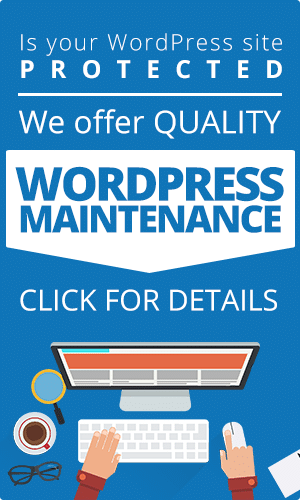An overview of website planning as shared by the experts of web designing companies, creative agencies, and branding agencies.
Did you know that a good website can skyrocket your sales, boost revenue and give you the power to dominate the market regardless of any industry?
It doesn’t matter if you are a successful entrepreneur, small business owner, freelancer, or service provider, a website is the ultimate medium to reach your target audience by creating brand awareness.
Now, you might wonder whether you should invest in web designers or web designing companies to create fancy-looking web designs or get ready-made templates from web development agencies like Wix, WordPress, Canva, Weebly et cetera.
Before you jump into making any big decisions, make sure to follow this website planning checklist:
- Focus ‘to solve’ & not just ‘to sell’
- Know your ideal target audience
- Take advantage of business opportunities in the age of automation
What is Website Planning?
Website planning is the initial step to proceed with web development. It’s a strategic activity that aims to define and document a website as per your business goals and needs.
Planning is a non-negotiable step for businesses and organizations. It gives a clear roadmap to ensure the website will operate effectively for the users.
The main purpose of this step is to define exactly what kind of website you want to build, how it should be built, and why. These steps will highlight your requirements and brand voice, which will also help the hired agency to understand your business with keen details.
What is the importance of Website Planning?
There are several advantages of website planning. Some of them are as follows:
Saves time & prevents additional expenses
If you are a business owner looking for sources to build your website, you would more than likely pay high prices for it. Website planning allows you to eliminate unwanted expenses and save money. The price quotes include some terms & conditions. Any type of work done outside the details provided will cost extra fees. The detailed web plan and structure prevent the possibility of paying extra fees. However, if you provide an incomplete guide, you are likely to be charged more.
Constant changes to the website could cost more time. In this process, the building of the website could be hampered. Thus without proper planning and consultation, the final website could end up not being what you’re expecting. Plan wisely!
Solves Web Design Issues
Web design and visual representations are the key features of a website. A common misinformation is that web design deals with the color pattern, contrast, and other design factors of a website. However, this is only half of the truth. Web design incorporates a complete layout based on content, goals, knowledge of products et cetera.
If you are not clear with your website plans and the role of each page, there are chances for several design issues to occur. The website designer must have a clear idea of everything. Without proper communication, there are chances that they might be looking at your competitors for ideas.
Achieve business goals with better results
It is essential to have the plan to get better results just like any business plan. To create an effective plan, it is essential to acknowledge the results you want. This gives you a clear picture to achieve your growth plans.
A fancy-looking website isn’t the only medium to get leads. To sell your products, focusing on better response times is essential. If you end up choosing a fancy-looking design that is visually pleasing, you might be ignoring the primary requisites of your website.
A clear understanding of the purpose and goals of the website
To avoid regrets and gain positive results, spend time on planning. Apart from that, learning proper strategies to implement your business can help you understand the purpose and goal of your website. While creating your plan, you must consider the perspective of your users as well.
It is important to be patient while creating a web plan. It is the first and most important step that will build your website smoothly and without errors.
How to do Website Planning?
Before implementing your website plan, you need to answer numerous questions that deal with your ideal target audience, strategy, web design, budget, features et cetera. Here are a few things to consider when planning your website:
Set your Goals
While some people build websites to promote their businesses online, others simply need a platform to promote their ideas and thoughts to the world. Regardless of the circumstance, you must specify a specific objective if you want to achieve the desired outcome.
Ask yourself questions like:
What is the goal of the website, and which is the first thing you should consider?
Even if your main objective might be evident, it’s a good idea to break down your high-level objectives into more manageable, smaller goals.
Another convenient method is applying the SMART goal. SMART stands for “Specific Measurable Achievable Relevant Time-bound”. It helps in driving traffic.
There are several other tools over the internet that can help you in planning a website such as Make my Persona, Ahrefs, Ubersuggest et cetera. Each of them has a different role to play in website creation.
Prepare your Brand Identity
Popular brands and businesses have a profound brand identity that psychologically impacts the customers and their consumption increases. To create a brand identity that stands out, you can work with a graphic designer.
Brand Identity focuses on logos, color palettes, product packaging, typography, et cetera. Your brand identity represents not only the products and services your business offers but also the principles it upholds. Your brand identity, like your individual identity, is what makes you unique, and your website gives you a great opportunity to share it.
Budgeting and Maintenance
Planning a new website requires setting a realistic budget. Take into account ongoing costs as well, at least for the first few years, while creating your budget in addition to those related to the development and launch of the website.
The budget is a crucial component of planning. The cost is determined by the scope of the project or by the amount of subject matter expertise the team has. Hence, you must be aware that the best software, tools, hosting, domain, site design, and content management may require a large investment.
A website needs to be updated regularly to be maintained. It’s crucial to regularly update the material, including all of its features, designs, and other elements. You can either engage a team or outsource the job for this, but doing so will result in a monthly fee.
Marketing Strategies
After the creation of a website, the next step is to promote marketing. To make your website rank high, SEO is the most important aspect to focus upon. There are three main forms of marketing that include – Social media marketing, Advertisement, and Content marketing.
Another important feature is the copy of your website. It should be good enough to grab the attention of your target audience, generate leads and convert them into your customers.
Investing in Web Designing services
After the completion of your basic web plan, you should take the final step in deciding whom you want to create the website. It can be you, a freelancer, a small agency, or a big organization.
There are a plethora of templates and resources around the internet. However, it is mindful to invest when you want your website to bring instant results for you and monetize. Big agencies with a team of professionals might cost more money. In that case, you can opt for freelancers or small agency owners.
Final Thoughts
In conclusion, thorough planning is essential for any website build. You may want to consider outsourcing the process to a web design company. It is essential to create a website for internet presence and digital marketing. This guide will be beneficial to you regardless of your profession, whether you are an entrepreneur or a web designer.






